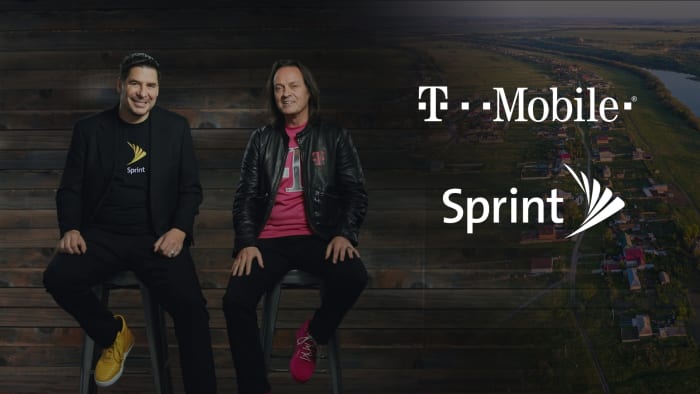T-Mobile-Sprint Merger Gains Approval

The smarter way to stay on top of the multichannel video marketplace. Sign up below.
You are now subscribed
Your newsletter sign-up was successful
After receiving a favorable decision in federal court that dismissed attempts by several states to block their merger, T-Mobile and Sprint said they are moving toward closing the deal that will create a stronger No. 3 wireless carrier.
U.S. District Court Judge for the Southern District of New York Victor Marrero ruled Tuesday that the merger, first proposed more than a year ago, would be in the public interest.
Several states attorneys general sued to block the deal last year, claiming that a combined T-Mobile and Sprint would lead to higher wireless prices and lessened competition. In his ruling, Judge Marrero wrote that the deal would likely “enhance competition in the relevant markets to the benefit of all consumers.”
The Federal Communications Commission approved the deal in November, and Tuesday FCC chairman Ajit Pai praised the merger, adding in a statement that it would help close the digital divide.
“This is a big win for American consumers,” Pai said in a statement.
[embed]https://twitter.com/AjitPaiFCC/status/1227227915655372800[/embed]
With those approvals in hand, T-Mobile and Sprint have the green light to go through with their $26 billion union.
The smarter way to stay on top of the multichannel video marketplace. Sign up below.
Investors were pleased that the deal is closer to the finish line, driving T-Mobile stock up 11%(9.27 each) to $93.80 per share, and Sprint stock up 71% ($3.39 each) to $8.19 per share in early trading Feb. 11.
“Today was a huge victory for this merger … and now we are FINALLY able to focus on the last steps to get this merger done!” T-Mobile CEO John Legere said in a press release. “We want to thank the Court for its thorough review of the facts we presented in our case. We’ve said it all along: the New T-Mobile will be a supercharged Un-carrier that is great for consumers and great for competition. The broad and deep 5G network that only our combined companies will be able to bring to life is going to change wireless … and beyond. Look out Dumb and Dumber and Big Cable – we are coming for you … and you haven’t seen anything yet!”
The deal is still subject to merger conditions, but is expected to be closed by April 1. Also as part of the merger, Dish Network has agreed to purchase Sprint’s prepaid wireless businesses (Boost Mobile and Virgin Mobile) for $1.4 billion and pony up about $3.6 billion for 800 Megahertz of wireless spectrum from the combined T-Mobile-Sprint over three years. The Dish deals would take effect after the T-Mobile-Sprint closing.
The state's have the right to appeal, but that probably won't be in time to prevent the merger. Nevertheless, that hasn't stopped some state officials from voicing their displeasure with the ruling.
"...We disagree with this decision wholeheartedly, and will continue to fight the kind of consumer-harming megamergers our antitrust laws were designed to prevent," New York State Attorney General Letitia James said in a statement. "As we review our options, including a possible appeal, Americans should continue to hold the companies to account for their promises."
California State Attorney General Xavier Becerra also is evaluating whether to file an appeal, according to reports.
Still, that wasn't enough to damper the Sprint's enthusiasm.
“Judge Marrero’s decision validates our view that this merger is in the best interests of the U.S. economy and American consumers,” Sprint executive chairman Marcelo Claure said in a press release. “Today brings us a big step closer to creating a combined company that will provide nationwide 5G, lower costs, and a high-performing network that will invigorate competition to the benefit of all mobile wireless and in-home broadband consumers. With the support of federal regulators and now this Court, we will focus on quickly completing the few remaining necessary steps to close this transaction. I am proud of my Sprint team’s dedication, passion and resilience throughout the merger review process, and we are ready to make the vision of a New T-Mobile a reality.”
Earlier, Legere said he would step down as CEO of T-Mobile at the end of April after the deal is complete, handing over the reins of the combined company to chief operating officer Mike Sievert.
